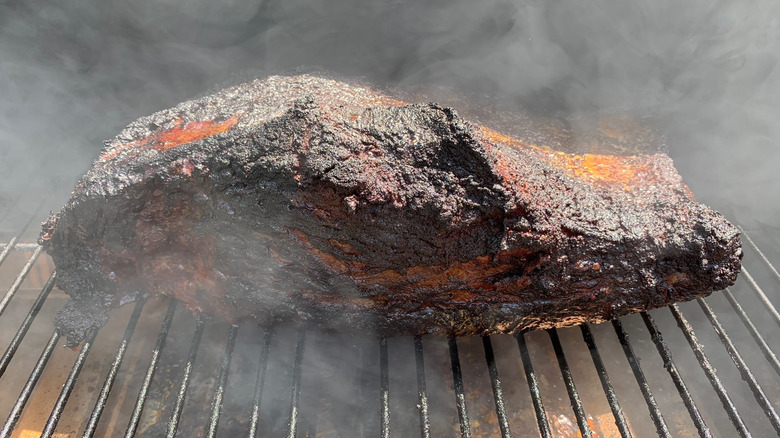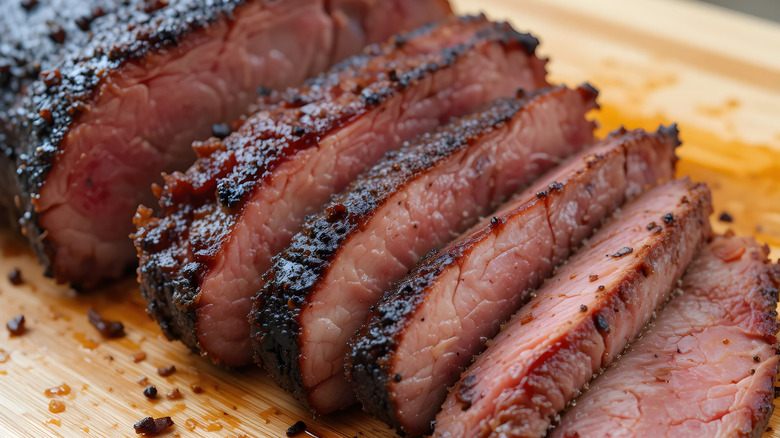How Long Do You Need To Let Brisket Rest?
Cooking brisket is a labor of love. Whether you braise it or smoke it, experts agree the best brisket cooking method is low and slow. The high level of connective tissue in this cut (essentially its pectoral muscles, resting just below the shoulder of the cow) becomes luscious and fork-tender over time, but you can't rush it. Trying to cook this beef cut too quickly is one of the mistakes that ruin a brisket's texture, and so is cutting into it too soon after cooking.
After trimming about ¼ to ½ inch of fat from your beef brisket, searing the meat at a high temperature for that enviable caramelized crust, and cooking at a low temperature for about an hour per pound, you may be eager to slice it right away. The tantalizing, meaty aromas have surely been wafting your way for the better part of the day. But not so fast. You'll need to rest the meat for about one hour first. Giving your brisket enough time to rest is a key step that will take it from dry and lifeless to moist and addictive.
Why we have to rest a brisket
There's a scientific reason why at least an hour-long rest is required for a cut of meat so large. The heat of the cooking process forces the juices towards the center of the cut as the meat's muscle fibers shrink in width. As the brisket's temperature falls during its one-hour rest, the muscle fibers open back up and pull the condensed juices out of the center. This is why allowing your brisket to rest long enough ensures that the moisture redistributes itself across the entire product so that each and every piece is as juicy as possible when you slice it, even the outer edges.
Just channel your inner celebrity chef. Culinary icon Anthony Bourdain famously talked about resting as the most overlooked factor for a perfect steak. Brisket is no different. Because it is a larger cut of beef with a higher fat content, the hour (as opposed to five to seven minutes for an individual steak) will also allow the meat to finish cooking after it comes off the heat (often referred to as residual or carryover cooking). When you are tempted to tamper, just remember Bourdain's words shared on the "No Reservations" Facebook page: "Don't even look at it. Just let it sit there. Leave it alone. And you will be rewarded."

